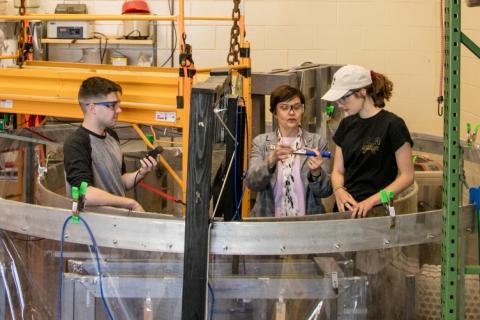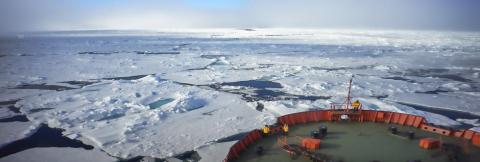
Given the urgency to prepare for Arctic change, the University of New Hampshire is developing the resolve and capacity to identify, understand, and communicate the critical science necessary to address the implications of the changing Arctic for communities both within the Arctic and on a global scale. Researchers from diverse departments and centers collaborate on projects across the Arctic.
Ocean Mapping and Marine Processes
Strengths in marine Arctic research include mapping the Arctic seafloor in support of establishing the limits of the U.S. continental shelf under the Law of the Sea, studies of submarine glacial landscapes, paleoceanography, methane seeps, acoustics, ocean thermal structure, coastal processes, ocean acidification.
The Center for Coastal and Ocean Mapping/Joint Hydrographic Center (CCOM/JHC)
The Center for Acoustics Research and Education (CARE)
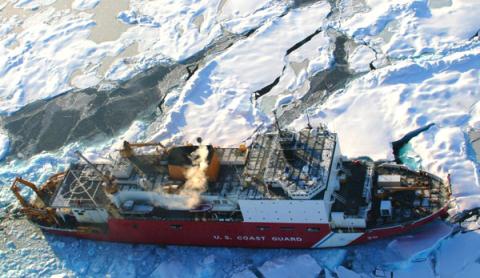
Glaciology
UNH researchers are leading field expeditions around the world to investigate atmospheric chemistry from airborne campaigns and ground-based stations, to recover ice cores from glaciers and ice sheets, and to measure albedo, snow chemistry, and energy fluxes of seasonal snowpacks.

Pan-Arctic Hydrology
Thawing permafrost and melting ice are influencing the discharge and chemistry of Arctic rivers. UNH researchers study Pan-Arctic hydrology and nutrient cycling, including implications for carbon dynamics.
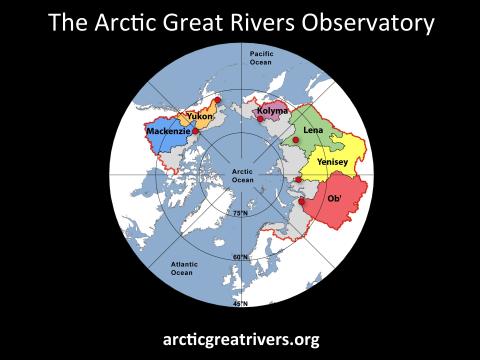
Permafrost Dynamics and Microbiomes
Faculty and students at UNH are studying the response of carbon, nitrogen and other element cycles to climate and land use change in the Arctic and sub-Arctic. By using the latest DNA sequencing techniques combined with cutting edge microbial ecology, researchers strive to identity the role of microorganisms in biogeochemical cycling.
Trace Gas Biogeochemistry Group
Ernakovich Lab
The Permafrost Microbiome Workgroup
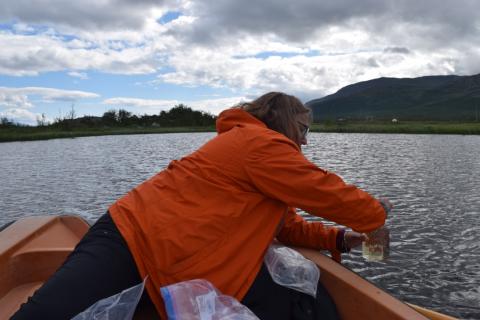
Seismic Resilience in the Arctic
Given the accelerating environmental, ecological, and social changes as the Arctic climate warms, including changes in soil properties, it is critical to understand how infrastructure and society respond to seismic events. UNH researchers and students are studying links between resilient infrastructure and social systems to help prepare thawing Arctic regions for future earthquake.
Geotechnical Modeling and Innovation Research Group
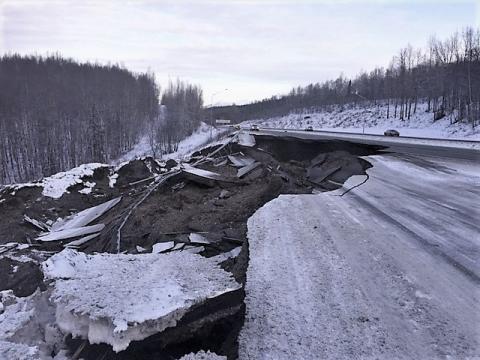
Arctic Flora and Fauna
UNH researchers are studying the diversity, distribution, and community dynamics of small mammals across space and over time in Arctic Alaska. They are particularly interested in the strength of wildlife-habitat associations and in the response of species and communities to land-use practices and climate change. Other groups are focusing on using stable isotopes to understand carbon and nitrogen cycling in tundra and northern peatlands at locations across the Arctic and sub-Arctic.
Ecosystems and Fungi Group
Rowe Lab
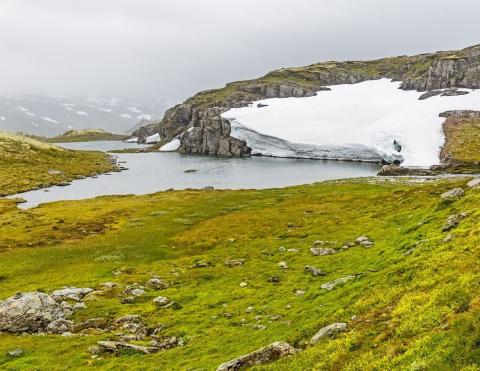
Social Perspectives on Arctic Sea Ice Melt
Research includes human-environment interactions around the circumpolar North, from Alaska to Greenland and the northern Atlantic, investigating topics such as fisheries crises in Greenland, Iceland and Newfoundland, “climigration” in Arctic Alaska, and the accuracy of predictions of sea ice.
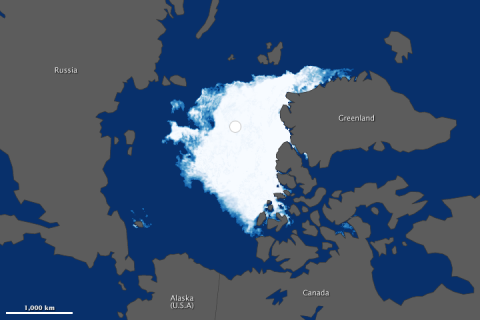
Airborne and Space-Based Remote Sensing of the Arctic
Unmanned Aerial System (UAS) and satellite observations are providing unprecedented access and spatial coverage to study Arctic systems. Researchers at UNH are using satellite data combined with field measurements to study phytoplankton blooms in the Arctic, calving icebergs in Greenland, and shifting ecosystems on the permafrost of Northern Sweden and Alaska.
Satellite, Airborne, and UAV Remote Sensing Group
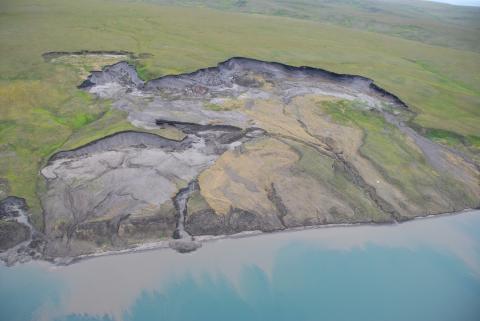
Space Science
The university is a well-known leader in space physics, conducting research in the Arctic to study space weather, magnetic fields, aurora, and solar activity.
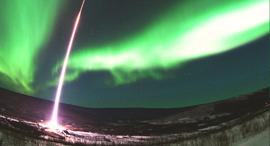
Oil Spill and Disaster Response
The rapid increase in Arctic shipping as sea ice melts increases the potential for devastating oil spills. Researchers and students at UNH are working with the Arctic Domain Awareness Center (ADAC) to improve oil spill modeling and response.
